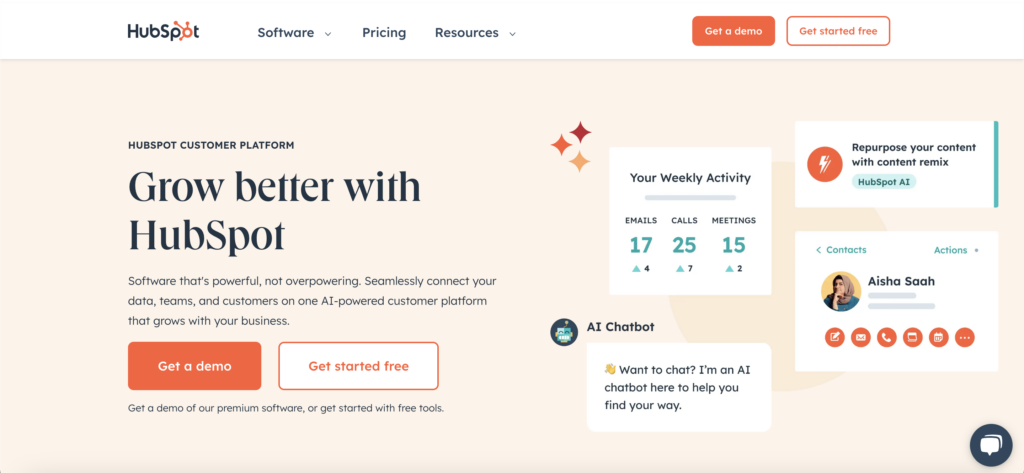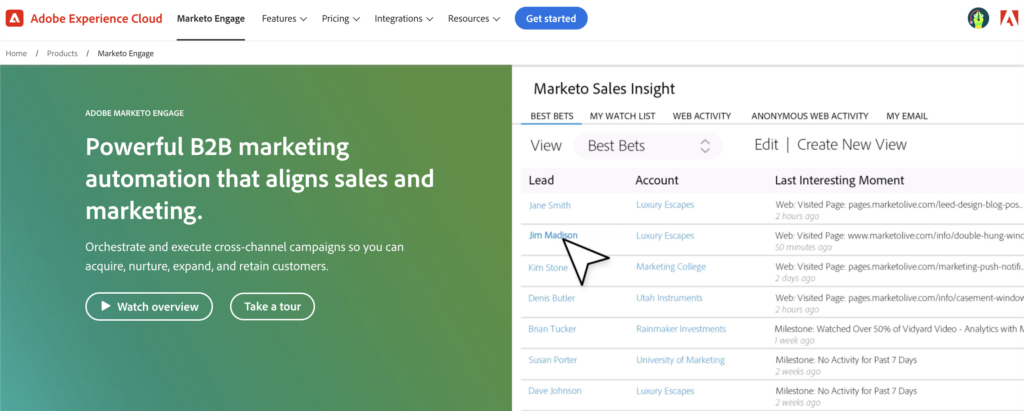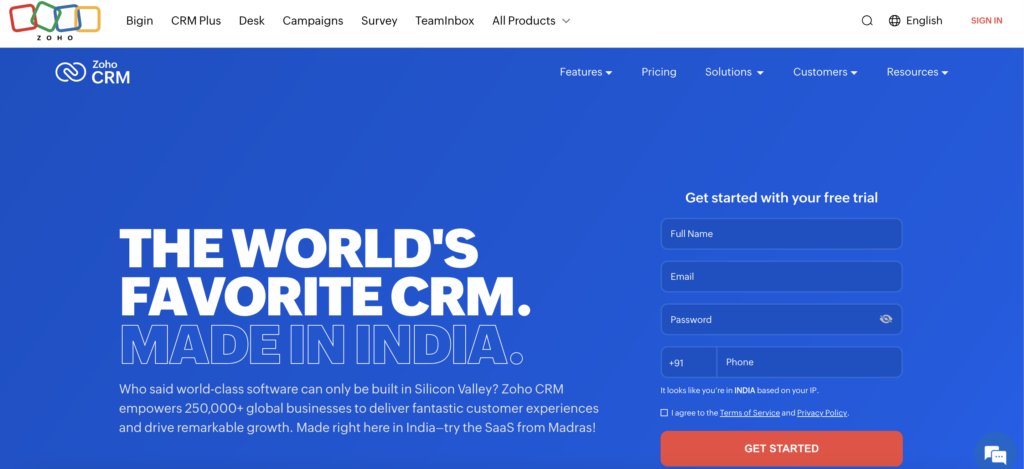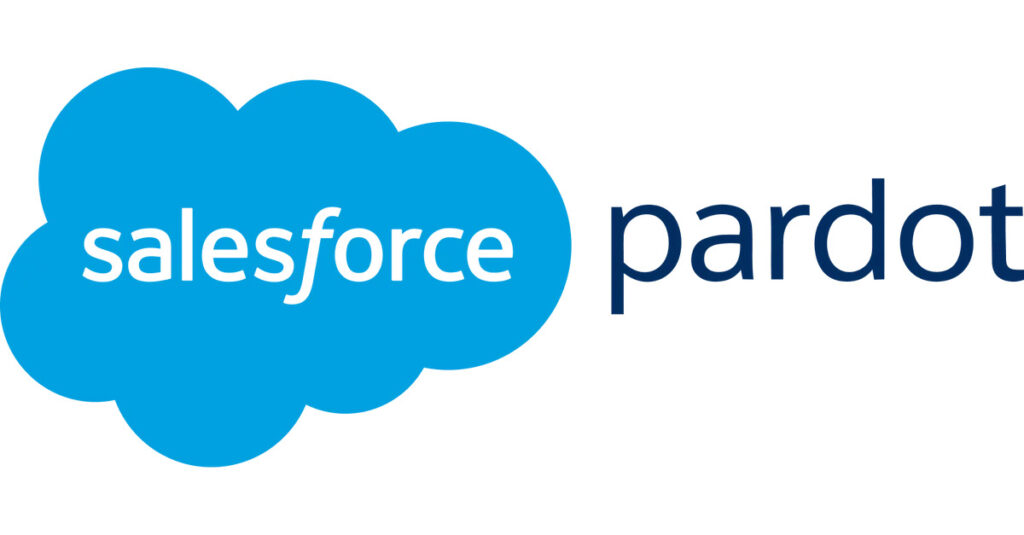Real Estate Marketing Automation: The Comprehensive Guide
Table of Content
In today’s fast-paced real estate market, staying ahead of the competition necessitates creative techniques and technologies. Real Estate Marketing Automation is transforming the industry by reducing marketing operations, increasing lead creation, and improving communication with prospective clients. Professionals can use automation to focus more on closing deals and less on managing monotonous duties.
Real Estate CRM Integration is a vital component of this change. Integrating CRM systems with marketing automation solutions facilitates data flow, allowing realtors to track interactions, segment leads, and modify marketing tactics accordingly. This connection not only improves productivity but also gives clients a more personalized experience, increasing satisfaction and loyalty.
In this blog, we will discuss what Real Estate Marketing Automation is and its significance. We’ll cover the Benefits of Real Estate CRM Integration, share the Top 5 Real Estate Marketing Automation Ideas, and outline Steps to Set up Real Estate Marketing Automation.
What is Real Estate Marketing Automation?
Real Estate Marketing Automation (RMA) is the use of technology and software to automate repetitive operations and streamline marketing efforts in the real estate sector. It involves integrating Real Estate CRM systems with automation tools to effectively handle leads, develop client relationships, and optimize marketing campaigns.
AI in real estate marketing is important because it analyzes data, predicts buyer behavior, and personalizes interactions, increasing efficiency and effectiveness. This combination allows real estate professionals to concentrate more on customer engagement and strategic decision-making, resulting in better overall business outcomes.
Benefits of Real Estate CRM Integration
1. Enhanced Real Estate Marketing Automation
Integrating Real Estate CRM with marketing automation systems consolidates client data and property information into a single platform. This integration allows real estate professionals to automate marketing campaigns, such as email newsletters, social media posts, and targeted advertisements. By automating these processes, agents can save time previously spent on manual tasks and focus more on strategic initiatives and client interactions. Moreover, it streamlines lead management by automating lead capturing, scoring, and nurturing, ensuring that leads are efficiently moved through the sales funnel.
2. Scalability and Growth

Integrated CRM systems support scalability by centralizing data and standardizing processes across teams and offices. This scalability is crucial for managing large volumes of client information and leads effectively as the business expands. Additionally, CRM integration facilitates seamless collaboration between different departments, such as sales, marketing, and customer service, by providing a unified platform for accessing client information and tracking interactions. This alignment improves operational efficiency, enhances customer experiences, and supports strategic decision-making for long-term growth and success in the real estate industry.
3. Facilitates AI in Real Estate Marketing
Real Estate CRM Integration provides access to robust data analytics and insights essential for AI-driven marketing strategies. By analyzing historical data and current market trends, AI algorithms can predict buyer behavior and preferences. This predictive capability enables real estate agents to tailor their marketing efforts more effectively, offering personalized property recommendations and targeted marketing campaigns. AI tools also enhance decision-making by providing data-driven insights into pricing strategies, investment opportunities, and market trends, thereby maximizing profitability and minimizing risks.
4. Improved Lead Management and Conversions
Integrated CRM systems track and manage lead interactions across various touchpoints, from initial inquiry to closing. This functionality allows agents to prioritize leads based on engagement levels and readiness to buy or sell. Automated lead nurturing workflows ensure that leads receive timely and relevant information, nurturing their interest and guiding them through the decision-making process. By maintaining consistent communication and providing valuable content, agents can significantly increase conversion rates and shorten sales cycles.
5. Enhanced Client Relationships

Real Estate CRM Integration enables personalized communication and client segmentation based on preferences, behaviors, and transaction history. Agents can automate reminders for property showings, follow-up emails after client meetings, and updates on market trends relevant to clients’ interests. This level of personalization fosters stronger client relationships, builds trust, and enhances overall satisfaction. By delivering timely and relevant information, agents can anticipate client needs and provide exceptional service, ultimately leading to repeat business and referrals.
Top 5 Real Estate Marketing Automation Ideas
1. Lead Segmentation and Personalization
Real Estate Marketing Automation, facilitated by Real Estate CRM Integration, allows agents to segment leads based on demographics, behaviors, and interests stored in CRM systems. By leveraging AI in Real Estate Marketing, agents can analyze this data to create personalized marketing campaigns tailored to each segment. Automated email drips, personalized property recommendations based on buyer preferences, and targeted social media advertisements enhance engagement and nurture leads effectively through the sales funnel.
2. Automated Email Marketing Campaigns
Using Real Estate Marketing Automation tools integrated with CRM systems, agents can set up automated email campaigns triggered by specific actions or milestones, such as website visits, property inquiries, or scheduled appointments. AI-powered analytics can optimize email content and timing, ensuring messages are delivered when leads are most likely to engage. Automated follow-ups, newsletters, and market updates keep clients informed and engaged throughout their buying or selling journey, improving retention and conversion rates.
3. Virtual Tours and 3D Property Presentations
Integrating Real Estate CRM with virtual tour and 3D presentation tools enables agents to automate property showcasing and virtual tours. AI technologies can enhance these experiences by providing interactive features, personalized property recommendations based on viewing history, and virtual staging options. Automating these processes not only saves time but also enhances the accessibility and appeal of properties to potential buyers, facilitating quicker decision-making and reducing the need for physical visits.
4. Social Media Automation and Advertising

Real Estate Marketing Automation includes tools for scheduling, managing, and analyzing social media posts across platforms like Facebook, Instagram, and LinkedIn. By integrating CRM data, agents can target specific audience segments with personalized content and advertisements. AI algorithms analyze social media engagement metrics to optimize ad placements and content strategies, maximizing ROI on advertising spend. Automated social media campaigns increase brand visibility, attract new leads, and foster community engagement within targeted demographics.
5. Predictive Analytics for Market Trends and Pricing Strategies
AI-powered Real Estate CRM Integration enables agents to harness predictive analytics for forecasting market trends, pricing strategies, and investment opportunities. By analyzing historical data and current market conditions, AI algorithms provide insights into property values, demand trends, and competitive analyses. Automated reports and data visualizations empower agents to make data-driven decisions, optimize property listings, and tailor marketing strategies accordingly. Predictive analytics also help mitigate risks and capitalize on emerging market opportunities, ensuring proactive and strategic business growth.
Steps to Set up Real Estate Marketing Automation
1. Define Objectives and Strategy

Begin by outlining clear objectives for implementing Real Estate Marketing Automation, such as improving lead generation or enhancing client communication. Align these goals with your overall business strategy to ensure synergy and maximize benefits from Real Estate CRM Integration and AI in Real Estate Marketing.
2. Select and Integrate Automation Tools
Choose suitable Real Estate Marketing Automation tools that support Real Estate CRM Integration and AI capabilities. Ensure these tools can automate tasks like email campaigns, lead scoring, and client segmentation, while seamlessly integrating with your CRM system to centralize data and streamline operations.
3. Configure Automated Workflows
Develop tailored workflows that automate repetitive tasks and standardize processes. Define triggers, actions, and conditions within your chosen automation platform to automate lead nurturing, personalized marketing campaigns, and client follow-ups. This step ensures consistency and efficiency in your marketing efforts.
4. Personalize Client Interactions
Utilize CRM data integrated with AI insights to personalize client interactions. Segment your client base based on demographics, preferences, and behaviors stored in your CRM system. Leverage AI in Real Estate Marketing to deliver targeted content, recommendations, and communications that resonate with each segment.
5. Implement Monitoring and Optimization
Monitor the performance of your automated campaigns and workflows using analytics tools provided by your automation platform. Track key metrics such as lead conversion rates, engagement levels, and ROI on marketing spend. Use these insights to continuously optimize your strategies and improve outcomes in Real Estate Marketing Automation.
Top 6 Real Estate Marketing Automation Tools
1. HubSpot

HubSpot offers a comprehensive Real Estate Marketing Automation platform that integrates seamlessly with CRM systems. It provides tools for email marketing, social media management, lead nurturing, and analytics. With Real Estate CRM Integration, agents can manage and track client interactions effortlessly. HubSpot’s AI capabilities enhance marketing efforts by analyzing data to optimize campaigns, personalize content, and predict client behavior.
2. Marketo

Marketo is a powerful marketing automation tool known for its robust features and flexibility. It supports Real Estate CRM Integration, allowing agents to automate lead management, email marketing, and campaign tracking. Marketo leverages AI in Real Estate Marketing to deliver predictive analytics, enabling agents to target the right audience with personalized messages and offers. Its advanced segmentation and nurturing capabilities ensure effective lead conversion and client retention.
3. Mailchimp

Mailchimp is a user-friendly Real Estate Marketing Automation tool that excels in email marketing and audience management. It integrates well with various CRM systems, making it easy to synchronize client data and automate email campaigns. Mailchimp’s AI features include predictive analytics and personalized recommendations, which help agents create targeted and effective marketing strategies. Its intuitive interface and comprehensive analytics make it a popular choice for real estate professionals.
4. ActiveCampaign

ActiveCampaign combines email marketing, automation, and CRM integration in one platform. It offers advanced Real Estate Marketing Automation features like automated workflows, lead scoring, and segmentation. With Real Estate CRM Integration, agents can track client interactions and automate follow-ups. ActiveCampaign’s AI-powered tools enhance marketing efforts by providing insights into client behavior and optimizing campaign performance for better results.
5. Zoho CRM

Zoho CRM is a versatile tool that includes robust Real Estate Marketing Automation capabilities. It supports seamless Real Estate CRM Integration, allowing agents to automate tasks like lead capturing, email campaigns, and social media posting. Zoho CRM’s AI in Real Estate Marketing features include predictive sales analytics and intelligent scoring, helping agents prioritize leads and tailor their marketing strategies. Its comprehensive suite of tools makes it an excellent choice for managing and automating real estate marketing efforts.
6. Salesforce Pardot

Salesforce Pardot is a leading marketing automation platform designed for B2B marketing, including real estate. It integrates smoothly with Salesforce CRM, providing a unified solution for managing and automating marketing tasks. Pardot’s Real Estate Marketing Automation features include lead nurturing, email marketing, and campaign tracking. Its AI capabilities, such as Einstein Analytics, deliver powerful insights and predictive analytics to optimize marketing strategies and improve client engagement.
Challenges of Real Estate Automation
1. Complex Integration Processes
Real Estate CRM Integration can be complex and time-consuming, especially when dealing with disparate systems and data sources. Ensuring that all systems communicate seamlessly and that data is synchronized accurately requires technical expertise and careful planning. Without proper integration, automation efforts can be hampered by data inconsistencies and operational inefficiencies.
2. Data Privacy and Security Concerns
Real Estate Marketing Automation involves handling sensitive client information, which raises data privacy and security concerns. Ensuring compliance with regulations such as GDPR and maintaining robust security measures to protect client data is crucial. Any breach or mishandling of data can lead to loss of trust and legal repercussions, making data protection a top priority.
3. High Initial Costs and Resource Investment

Implementing Real Estate Marketing Automation tools often requires significant upfront investment in software, training, and infrastructure. Additionally, integrating AI in Real Estate Marketing may necessitate specialized skills and ongoing maintenance. For smaller real estate firms, these costs can be a barrier to adoption, making it essential to carefully evaluate the return on investment.
4. Resistance to Change
Real estate professionals accustomed to traditional marketing methods may resist adopting new technologies and processes. This resistance can stem from a lack of understanding or fear of the unknown. Overcoming this challenge requires comprehensive training and demonstrating the tangible benefits of Real Estate Marketing Automation to gain buy-in from all stakeholders.
5. Maintaining Personalization
While Real Estate Marketing Automation aims to enhance efficiency, there is a risk of losing the personal touch that clients value. Automated messages and interactions can sometimes come across as impersonal or generic. Balancing automation with personalized communication is essential to maintain strong client relationships and ensure that clients feel valued and understood.
6. Data Quality and Management
The effectiveness of Real Estate CRM Integration and AI in Real Estate Marketing heavily depends on the quality of the data being used. Inaccurate, outdated, or incomplete data can lead to poor decision-making and ineffective marketing campaigns. Implementing robust data management practices and regularly updating client information is critical to maximizing the benefits of automation and AI.
FAQs
1. How does Real Estate CRM Integration benefit my business?
Real Estate CRM Integration centralizes client data, enabling seamless communication and automated workflows. This integration improves lead management, enhances personalization in marketing efforts, and provides valuable insights for better decision-making.
2. What role does AI play in Real Estate Marketing?
AI in Real Estate Marketing analyzes data to predict buyer behavior, optimize marketing strategies, and personalize client interactions. It helps automate tasks like lead scoring, content recommendations, and market trend analysis, making marketing efforts more efficient and effective.
3. How can I ensure data security and privacy in Real Estate Marketing Automation?
Implement robust security measures such as encryption, secure access controls, and regular data audits. Ensure compliance with data protection regulations like GDPR and educate your team on best practices for data privacy and security.
4. Can small real estate firms benefit from marketing automation?
Yes, marketing automation can benefit small firms by improving efficiency, reducing manual tasks, and enabling personalized marketing at scale. While initial costs can be a concern, the long-term benefits of lead generation and client engagement can provide a strong ROI.
5. How do I measure the success of my Real Estate Marketing Automation efforts?
Use analytics and reporting tools provided by your automation platform to track key metrics such as lead conversion rates, engagement levels, and ROI. Regularly review these metrics to identify areas for improvement and optimize your marketing strategies.
6. How can I balance automation with personalized client interactions?
Use CRM data and AI insights to segment your audience and tailor automated messages to specific client needs. Combine automation with personalized touches, such as customized property recommendations and timely follow-ups, to ensure clients feel valued.






